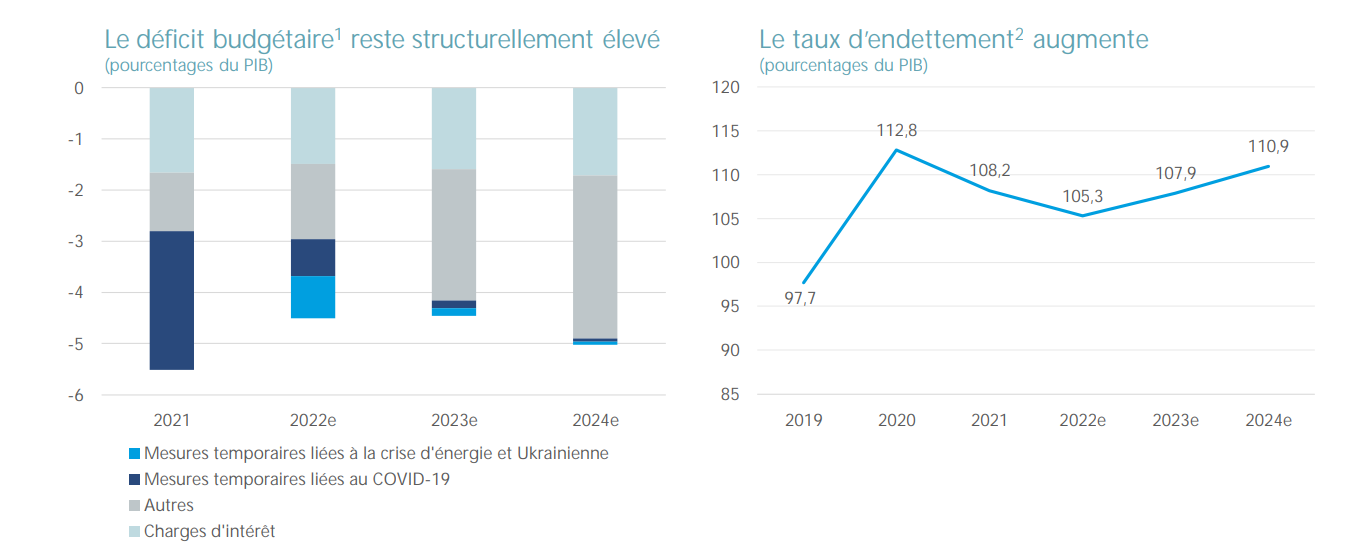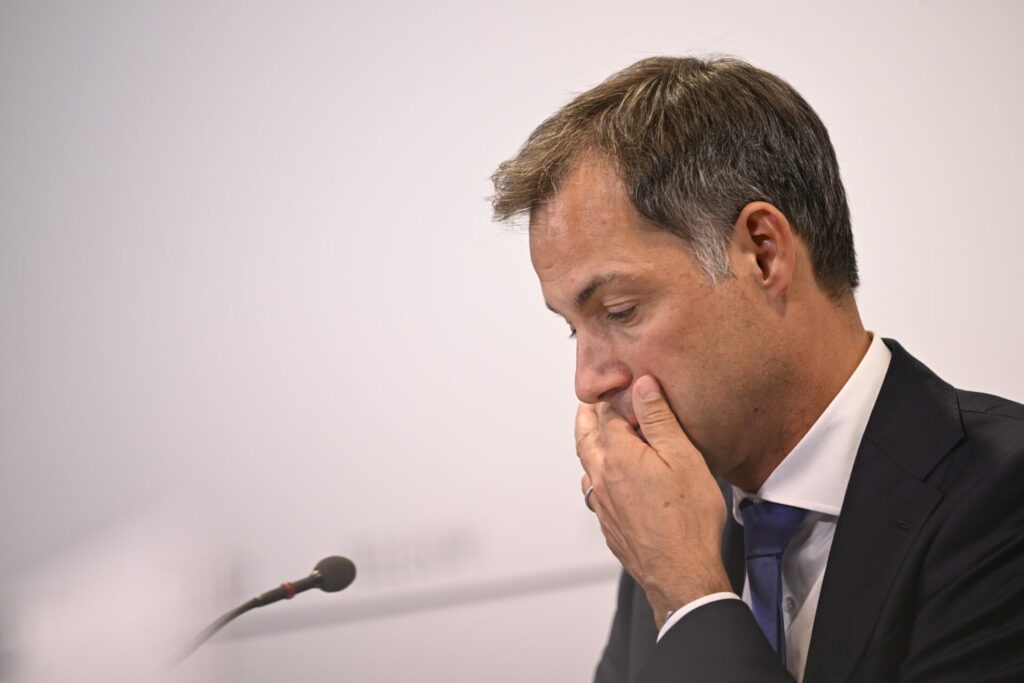Data published by the National Bank of Belgium (NBB) on 16 September suggests that, since the start of the war in Ukraine, Belgium has seen a €5.12 billion decrease in its federal budget due to expenses and interventions relating to increased energy prices, as well as military and humanitarian support for the war in Ukraine.
The war in Ukraine has radically altered the state of the European economy, with many now forecasting a recession fuelled by high inflation and energy costs.
Naturally, measures to protect its citizens from the economic impact of the war in Ukraine are extremely costly for the Federal Government, which has chosen to finance macroeconomic relief for the Belgian economy.
Belgium digs deep for Ukraine
With the poor continue to get poorer in Belgium, and the middle class are also increasingly relying on support from social services, the government has taken various measures to protect its citizens from the worst effects of the cost of living crisis and energy prices, which have impacted this year's budget.
By far the biggest impact on the budget is from the reduction of excise duties on petrol and diesel. First introduced in March and extended until the end of the year, the budgetary intervention has taken €927 million out of the federal budget.
The reduction of VAT on electricity, which has been decreased from 21% to 6% until December, has also led to a loss of €915 million from the budget.
In total, measures aimed at reducing the cost of energy have had a €3.8 billion impact on the federal budget. In Flanders, regional support for residents, notably a reduction in electricity tariffs which fund public service obligation, totalled €166 million.
In the fight against climate change, measures aimed at reducing the consumption of fossil energy have also had a significant impact on the federal budget.
Government budgetary support for transitioning away from fossil fuels and towards renewable energy has had a notable impact on the government’s expenses.
The reduction in VAT on solar panel and heat pumps to 6% , which is set to run until the end of 2023, will cost the Federal Government €16 million in missed taxes alone. Likewise, compensation to Belgian rail operator SNCB for the non-indexation of prices, a move aimed at protecting Belgian commuters, deducted €13 million from the federal budget this year.
Again, the impact of reducing fossil energy is also felt at the regional level. In Flanders, grants for building insulation, aid for renovation costs, and the purchase of heat pumps and renewable energy sources set the regional budget back €98 million this year.
This year, Belgium also demonstrated remarkable commitment to Ukraine’s territorial integrity, as well as support for its citizens displaced by Russia’s invasion.
At the last count, 52,000 Ukrainians were reported to be on Belgian soil, with many receiving benefits and humanitarian support from the state. In terms of military support, Belgium has directly donated at least €45 million of military equipment to Ukraine.
Social contract
Social provisions, including the reception of refugees and humanitarian aid, have had an €800 million impact on the Federal government’s finances. An additional €30 million went towards temporary unemployment support and other support.
Similarly, military spending cost another €450 million.
In Flanders, Brussels, and Wallonia, the collective impact of humanitarian provisions as a result of the war in Ukraine are estimated to total around €400 million.

Belgium's budget deficit and public debt. Credit: National Bank of Belgium
Belgium’s budget deficit is now one of the highest in Europe. By 2023, it is estimated that Belgium will have the second fastest rising budget deficit in the European Union, and the sixth highest total deficit by percentage of GDP.
Related News
The European Commission has advised that Belgium should pursue a “prudent fiscal policy” this year, ensuring that expenditure growth remains below medium-term GDP growth. Belgium’s current expenditure growth far exceeds expected mid-term growth.
In 2023, the commission said that Belgium should work towards reducing its debts and exercising medium-term fiscal sustainability.

